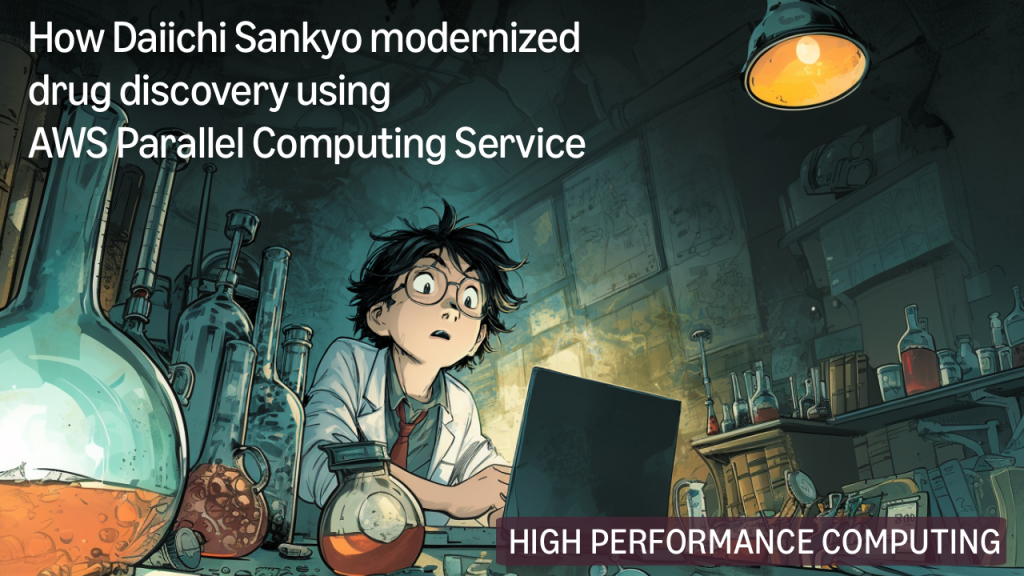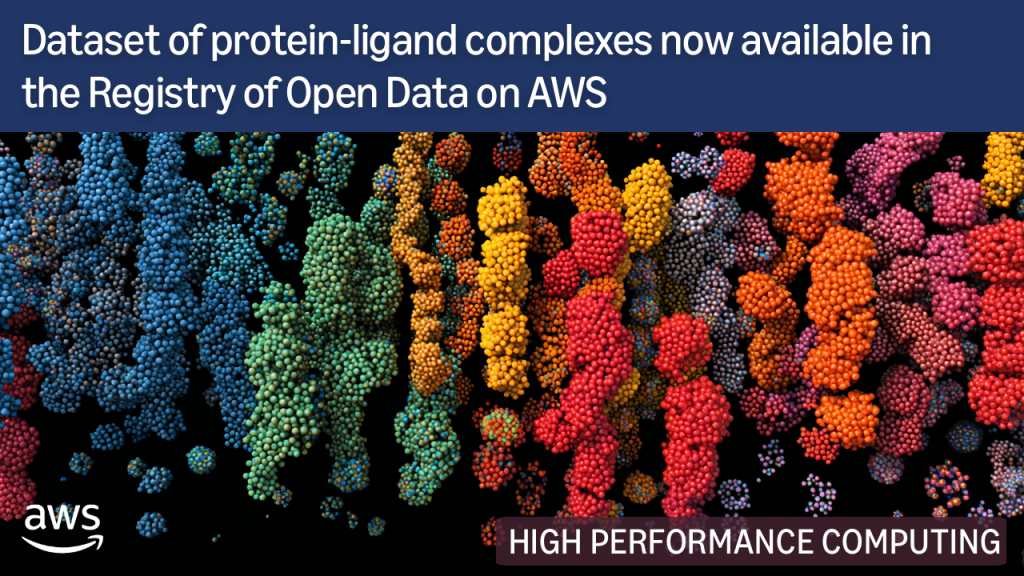AWS HPC Blog
Tag: Scientific Computing
How Aionics accelerates chemical formulation and discovery with AWS Parallel Computing Service
This post was contributed by Mohamed K. Elshazly, PhD, Kareem Abdol-Hamid, Sam Bydlon, PhD, Aarabhi Achanta, and Mark Azadpour The decarbonization of our modern economy depends on solving a defining scientific challenge: developing batteries that are both safe and high performing. From electrical grids to vehicles and aviation, these energy storage devices must provide power […]
How Daiichi Sankyo modernized drug discovery using AWS Parallel Computing Service
This blog was co-authored by Takehiro Nakajima and Mark Azadpour from AWS and Rintaro Yamada, Rei Kajitani and Ryo Kunimoto from Daiichi Sankyo In recent years, the informatics field of drug discovery has seen a rapid increase in workloads requiring large-scale parallel computing, such as genome analysis, structure prediction, and drug design. Daiichi Sankyo has […]
What’s the difference between AWS ParallelCluster and AWS Parallel Computing Service?
It’s been a year since we announced AWS Parallel Computing Service (PCS). In a way this is the third generation of Slurm-based HPC orchestrators that we’ve brought to you. We’ve learned much from helping customers deploy serious production workloads on AWS ParallelCluster, which itself grew from the foundations layed by CfnCluster – the open-source project […]
A scientific approach to workload-aware computing on AWS
HPC workloads demonstrate predictable resource patterns that can directly determine optimal cloud instance selection. To save you conducting extensive custom benchmarking, this blog post presents a data-driven methodology for instance selection based on established performance research. In this post, you’ll learn how to use coupling patterns to drive instance selection. We’ll outlines our scientific methodology […]
Dataset of protein-ligand complexes now available in the Registry of Open Data on AWS
This post was contributed by U. Deva Priyakumar, Rakesh Srivatsava, Prathit Chatterjee, Vladimir Aladinskiy, Ramanathan Sethuraman, Yusong Wang, Alex Iankoulski, and Beryl Rabindran Today, we’re excited to announce the release of a comprehensive dataset featuring molecular dynamics (MD) trajectories for over 16,000 protein-ligand complexes (PLCs). This dataset, now available on AWS as part of the […]
Announcing expanded support for Custom Slurm Settings in AWS Parallel Computing Service
Today we’re excited to announce expanded support for custom Slurm settings in AWS Parallel Computing Service (PCS). With this launch, PCS now enables you to configure over 65 Slurm parameters. And for the first time, you can also apply custom settings to queue resources, giving you partition-specific control over scheduling behavior. This release responds directly […]
How DTN accelerates operational weather prediction using NVIDIA Earth-2 on AWS
Cyclone chasing just got a whole lot smarter! Check out how DTN’s AI-powered weather model is rewriting the forecast. Brace yourself for the future of weather prediction.
Announcing Capacity Blocks support for AWS Parallel Computing Service
This post was contributed by by Kareem Abdol-Hamid, Kyle Bush Today we’re happy to announce that support for Amazon EC2 Capacity Blocks for Machine Learning are now supported in AWS Parallel Computing Service (AWS PCS). This allows you to reserve and schedule GPU-accelerated Amazon EC2 instances for future use. That includes the NVIDIA Hopper GPU […]
Predict the unpredictable: Disrupting drug lead optimization using quantum mechanics simulation in the cloud
Quantum mechanics meets drug discovery: QSimulate’s latest advancements in QM-based FEP simulation are poised to transform the industry. Our blog post takes you on a journey through the groundbreaking science and innovative software that are redefining the future of drug design.
Adding configurable namespaces, persistent volume claims, and other features for AWS Batch on Amazon EKS
Exciting updates to AWS Batch on Amazon EKS! Configurable namespaces, persistent volume claims, and more. Check out our blog post to see how these features can help manage your complex containerized workloads.









